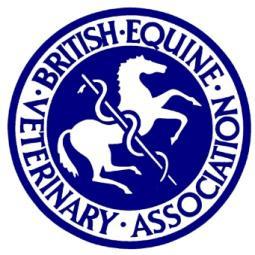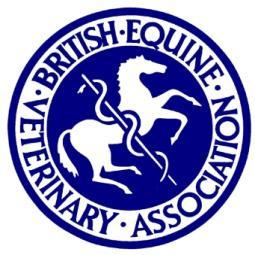The British Equine Veterinary Association (BEVA) is outraged that its members are being regularly asked to break the law by inseminating imported equine semen that doesn’t have an accompanying health certificate. Such practice not only jeopardises the current high health status of the UK horse population but also risks the professional status of the vets involved.
Thousands of shipments of equine germinal product (semen, ova or embryos) are imported into the UK every year. It is a legal requirement for all imported equine semen to be accompanied to the place of destination (usually to the side of the mare) by an original, valid health certificate (ITAHC), issued in the country of origin.
Recently, consignments of equine semen have been imported without the appropriate health certificates meaning that there is no guarantee that the semen is free from the stated diseases or even that it is from the chosen stallion. Shockingly, well-known importing agents have advised mare owners that these certificates are unnecessary and these businesses have also openly criticised vets who refuse to inseminate mares with uncertified imported semen.
The use of uncertified semen leads to the real risk of a recipient mare becoming infected with diseases such as CEM or EVA, the potentially rapid spread of disease in breeding stock and eventual restrictions being placed on breeding premises. Recent outbreaks of Equine Infectious Anaemia (EIA) in Europe have exacerbated such health threats to the UK herd.
The personal and professional reputation of any vet involved with using uncertified semen is also in danger, with the RCVS likely to take a stringent line with any vets who disregard animal health laws and the high health status of British horses.
Malcolm Morley, Partner at Stable Close Equine Practice was recently placed in a difficult position with a longstanding client when semen arrived without the requisite documentation. Following a discussion between the semen importer and his client, where the client was told that Malcolm was being pedantic and that the client should find someone else to inseminate the mare, Malcolm contacted the importer stating: “We have no intention of inseminating the mare without the correct health papers. Please will you ensure that when you speak to the mare’s owner that you make it clear that you do not expect us to inseminate the mare in these circumstances and that the health papers should have been shipped with the semen.”
Another BEVA member who wishes to remain anonymous, has voiced the concerns of numerous equine stud vets. She said: “I have one very big client I think I may be about to lose because of my refusal to inseminate his mare without papers … (the importing stud) did not feel it worth a three hour drive to get papers done. The semen importer has made it clear to my client that (they believe) I am just being awkward.”
Mark Bowen Senior Vice president of BEVA said: “Import agencies have placed additional pressure on the vets to inseminate mares without the necessary paperwork. Not only is this action illegal but places recipient mares under a direct threat from a notifiable and incurable disease. This seems particularly cavalier given the recent outbreaks of EIA across Europe.”
Tullis Matson, Founder and Managing Director of Stallion AI Services said: “No one should be inseminating mares with imported semen that isn’t accompanied by the original health certificate. If the UK wants to retain its high health status and continue to utilise the international market it needs the breeding industry and the veterinary profession to use the disease controls that are currently place until such a time as we can implement more efficient system.”
BEVA is supporting members with the following protective measures:
-
Notifying owners that they must tell the agent that they will not accept semen without a valid health certificate, in order to protect the health of their own horses.
-
Reassuring all vets performing stud duties that they are right to refuse to inseminate mares with semen that isn’t accompanied by a valid health certificate, in order to protect their professional status and safeguard the health status of the UK herd.
-
Making sure owners and vets are fully aware that if they receive imported semen that isn’t accompanied by a valid health certificate they must report it immediately to their local animal health office and arrange for the semen to be destroyed.
-
Reminding agents of the law and to make them aware that all BEVA members have been advised to report any indiscretions to their local animal health office.
For further information visit www.beva.org.uk












